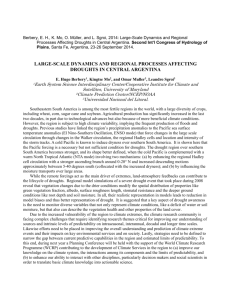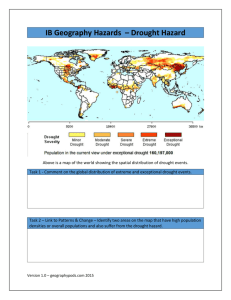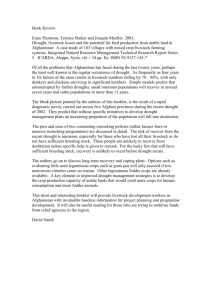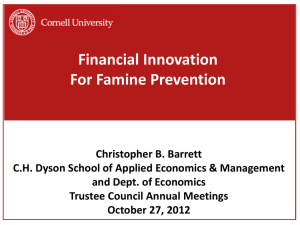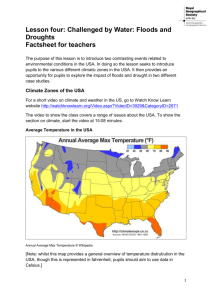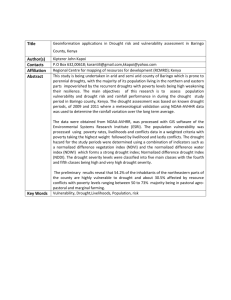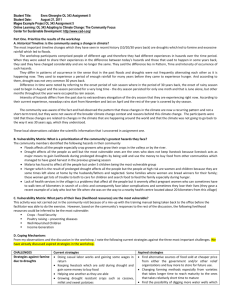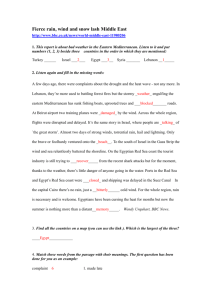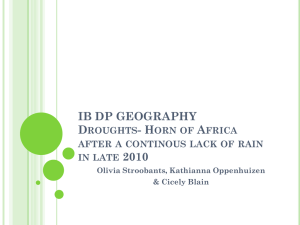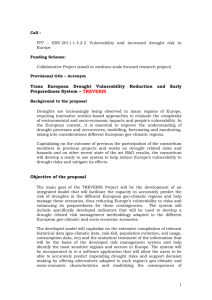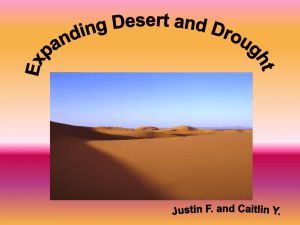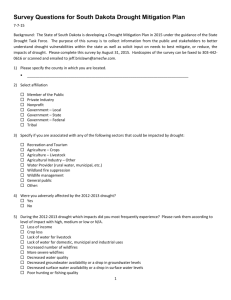Dry Seasons: The Effects of Drought
advertisement
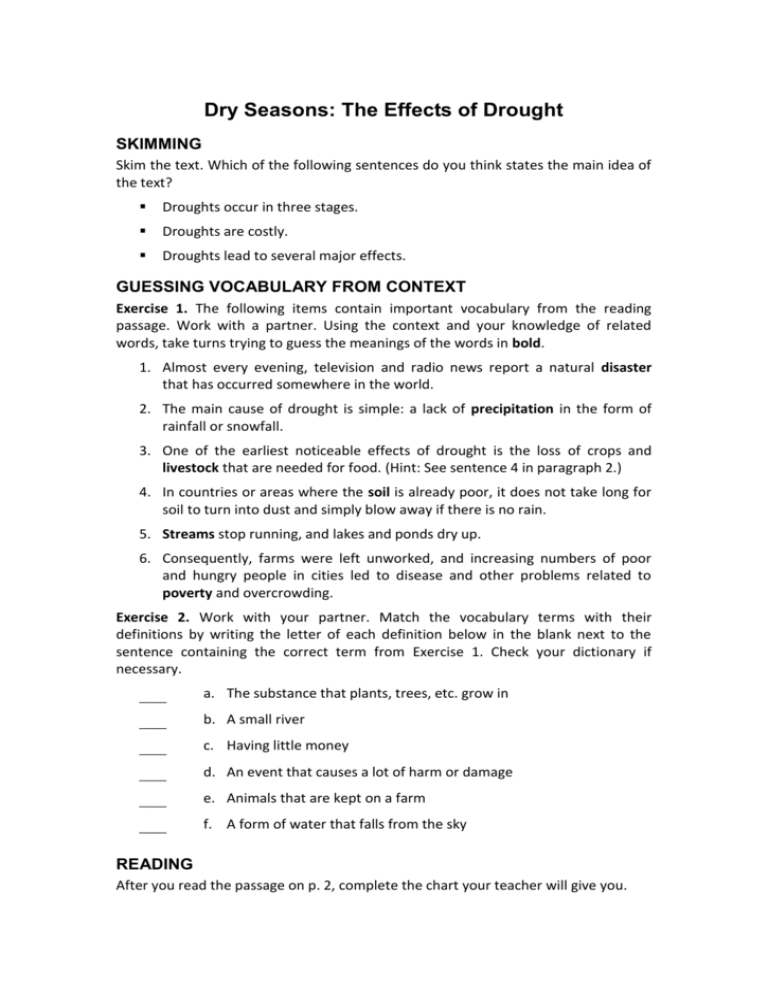
Dry Seasons: The Effects of Drought SKIMMING Skim the text. Which of the following sentences do you think states the main idea of the text? Droughts occur in three stages. Droughts are costly. Droughts lead to several major effects. GUESSING VOCABULARY FROM CONTEXT Exercise 1. The following items contain important vocabulary from the reading passage. Work with a partner. Using the context and your knowledge of related words, take turns trying to guess the meanings of the words in bold. 1. Almost every evening, television and radio news report a natural disaster that has occurred somewhere in the world. 2. The main cause of drought is simple: a lack of precipitation in the form of rainfall or snowfall. 3. One of the earliest noticeable effects of drought is the loss of crops and livestock that are needed for food. (Hint: See sentence 4 in paragraph 2.) 4. In countries or areas where the soil is already poor, it does not take long for soil to turn into dust and simply blow away if there is no rain. 5. Streams stop running, and lakes and ponds dry up. 6. Consequently, farms were left unworked, and increasing numbers of poor and hungry people in cities led to disease and other problems related to poverty and overcrowding. Exercise 2. Work with your partner. Match the vocabulary terms with their definitions by writing the letter of each definition below in the blank next to the sentence containing the correct term from Exercise 1. Check your dictionary if necessary. ___ a. The substance that plants, trees, etc. grow in ___ b. A small river ___ c. Having little money ___ d. An event that causes a lot of harm or damage ___ e. Animals that are kept on a farm ___ f. A form of water that falls from the sky READING After you read the passage on p. 2, complete the chart your teacher will give you. Reading Passage Tornado! Flood! Hurricane! Almost every evening, television and radio news report a natural disaster that has occurred somewhere in the world. Like their more violent and immediately destructive cousins, droughts—periods of unusually dry weather— are also natural disasters. The main cause of drought is simple: a lack of precipitation in the form of rainfall or snowfall. However, because drought is an ongoing condition rather than a single occurrence such as a tornado, it can be difficult to measure its long-term effects on people, environments, and economies. One of the earliest noticeable effects of drought is the loss of crops and livestock that are needed for food. In countries or areas where the soil is already poor, it does not take long for soil to turn into dust and simply blow away if there is no rain. Without topsoil, crops cannot grow. Neither can the grasses that cattle, sheep, and other livestock eat. Streams stop running, and lakes and ponds dry up. Without water, crops, livestock, and wildlife, people cannot survive. Widespread malnutrition and even starvation can occur, causing numerous deaths in affected regions. If a drought is very lengthy, the threat of starvation may motivate people to migrate. Large numbers of people from rural areas move to cities during droughts. Often, even after a drought has ended, they do not return to their original homes. In just thirty years, for example, nearly 5.5 million people moved out of drought-prone northeastern Brazil. Consequently, farms were left unworked, and increasing numbers of poor and hungry people in cities led to disease and other problems related to poverty and overcrowding. Once cities become crowded with sick, hungry people, citizens begin to pressure their governments for relief. Political conflicts and even wars can result if governments fail to provide adequate assistance. In fact, the World Bank, an organization dedicated to fighting poverty and improving living standards, suggests that poverty has led to major conflicts in nearly one-half of the world’s low-income countries since 1980. According to the Department of Commerce, the average annual cost of droughts in the United States alone is over six billion dollars, more than twice the cost of floods. However, it is hard to put a price tag on the human suffering, political upheaval, and environmental damage caused by droughts—especially in developing countries. Unlike other weather phenomena, droughts tend to go on and on, spreading their effects far beyond dusty farms and dried-up wells. As complicated as the effects may be, author John Updike summed up the cause very simply: “Rain is grace; rain is the sky condescending to the earth; without rain, there would be no life.”
